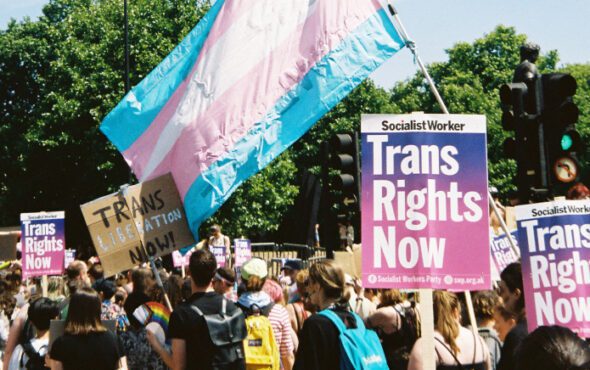
Transgender people in Scotland will have to apply for a UK gender recognition certificate in order to be recognised outside of the country under changes expected to be made by ministers.
In a written statement shared on 9 January, Kemi Badenoch, the Minister for Women and Equalities, announced a review into “the list of approved overseas countries and territories” in relation to which international gender certificates the UK recognises.
“There are now some countries and territories on the list who have made changes to their systems since then and would not now be considered to have equivalently rigorous systems,” she continued. “It should not be possible for a person who would not satisfy the criteria to obtain UK legal gender recognition to use the overseas recognition route to obtain a UK Gender Recognition Certificate. This would damage the integrity and credibility of the process of the Gender Recognition Act.”
The list was last updated in 2011, when Montenegro and Latvia were removed.
Badenoch shared that her department is “finalising details of overseas countries and territories to be removed from the list” through “a thorough checking system to verify our understanding of each overseas system in question.”
It comes after SMPs voted by 86 votes to 39 last month in favour of self-identification, meaning trans people will no longer need to be medically diagnosed with gender dysphoria before obtaining a gender recognition certificate as they would in the rest of the UK.
In addition, trans people no longer need to prove that they’ve lived in their gender identity for two years before gaining recognition, while also dropping the minimum age of applying for the certificate from 18 to 16.
UK government sources have since said that unless a medical diagnosis of gender dysphoria was required in Scotland, the UK would no longer recognise it as having a “rigorous” process for changing gender, according to The Times.
“This is just a procedural change and it was envisaged in the 2004 act. It is not a new measure, it was done in 2011 and we are updating it for 2023,” the source told the outlet.
“We are not discriminating against people from foreign countries with GRCs. If they arrive in this country with one from a country that has a less rigorous system than the UK, we’re saying you should apply for a UK GRC, which is readily available.”
Badenoch’s announcement has been met with condemnation from a number of LGBTQ+ activists and organisations alike, with Stonewall describing it as “a disgraceful low”.
Today, the UK Government put into motion plans to impose unprecedented restrictions on trans people's rights.
This is a spiteful attack on trans people who want to make their lives in Britain.
Act now. Call on the UK Gov to show trans people respect ⬇️https://t.co/kWlpCaiMXe
— Stonewall (@stonewalluk) January 9, 2023
“Trans people from countries like Canada, Australia and New Zealand have had their gender recognition certificates respected by the UK for years. Seeking to end this system is an extraordinary move, not based on evidence or experience, that will effectively serve as a ‘trans travel ban’,” it said in a statement.
“Ending recognition of GRCs from as many as fourteen countries who are our close allies and seeking to block implementation of the Scottish GRR Bill have significant consequences for trans people who are directly affected. But this also sends a message that the UK Government sees trans people as a threat to be contained, not citizens to be respected.”
Jayne Ozanne, who chairs the Ban Conversion Therapy Coalition and resigned from the government’s LGBT advisory panel in 2021 after accusing it of creating a hostile environment for the community, described the potential change as “exceptionally concerning”.
This is exceptionally concerning.
It's s as if the UK government are wanting to ignore the needs – indeed the very existence- of #trans people in a vicious ideological culture war that pits them against the majority of the British public! https://t.co/dGZpC1V8DX
— Jayne Ozanne 🇺🇦 (@JayneOzanne) January 9, 2023
Writing on Twitter, she added: “It’s as if the UK government are wanting to ignore the needs – indeed the very existence- of #trans people in a vicious ideological culture war that pits them against the majority of the British public!”
Exactly when the government will share its updated list is unclear.



